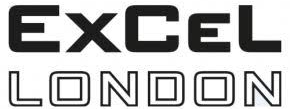“Innovation is the ability to see change as an opportunity – not a threat.” – Steve Jobs.
At EP Business in Hospitality, our distinction lies in our commitment to pioneering thought leadership and yielding invaluable industry perspectives. Over the past few years there has been transformative shifts in the business landscape, and hospitality enterprises universally acknowledge the importance of perpetual enhancement. Central to our ethos is the convergence of seasoned wisdom and growing perspectives, fostering an environment that continuously pursues optimal solutions.
Over the last few months, EP found that we are being asked for increased open forums and platforms which do promote new digital, technology and robotics and allows for a central question to be asked and debated – how will robotics and technological innovation change the face of the industry in the next five years?
As we stand today, it does seem that the primary agenda item engaging most operating boards is in relation to service innovation. With all the challenges facing the industry, we want to explore how robotics and technological innovation can provide new solutions to operators, allowing for higher levels of service to be provided and margin to be protected.
The last few years have been highly challenging for operators, not just because of the Covid-19 pandemic but with how so much has been impacted in ways not even imagined in 2020. It has been estimated that expectations for operators have increased by 20% and yet at the same time, costs have increased by a similar figure. Companies today are investing in ESG, in retention, in new service methodologies and in new Smart technology within rooms.
It was recently estimated that a hotel room built in 2020 would today operate at 25% of the cost of a room built in 2012. Many do argue that this is one of the fastest periods of change witnessed by the industry. The industry itself will continue to prosper but how will be impacted by customer expectations, new working patterns, and the desire for new benchmarks in luxury to be met?
There are many questions to be explored and discussed which make the proposed series of conferences a genuinely exciting prospect.
- The reduction of waste has long been a well discussed topic but today I rising to another level across several areas including:
- Food waste – today a central issue so what are the learnings and how is this area evolving?
- Reducing waste via move to digital procurement. There is a strong belief that there are major savings to be found via a stronger digitalized approach.
- How can operators communicate and interaction with the consumer be ever improved?
- What will service look like in 2028?
- How can the industry compete more effectively for available talent, and support their development in new ways?
- How can digitalization today hold the key to model and margin maximization?
- There is a growing understanding that we will not return to 2019 business dynamics, and we have entered a new era. How will this unfold?
- New working behaviours have developed. How will hospitality also change in line with new working patterns?
Companies are working hard to therefore listen, learn and to develop new solutions which can reduce costs, improve service, maintain margin, and improve revenue potential. Most employers feel under increased pressure to innovate and find new solutions.
We recognise the importance in understanding more about digital and AI as it will ultimately impact the industry and businesses as we move forward. Leading us to host a series of conferences at leading hotel schools across Europe to look at how robotics and technology is changing the face of the industry. Our aim is to literally bring together some of the leading innovators and entrepreneurs from across the sector to be speakers for the events.
Amid a 50-year low in UK social mobility, recruitment remains a persistent industry challenge. The question we ask is whether the industry can address this concern while also resolving the talent shortage? To substantiate this further, the average age of a CEO today is 62; leading to arguably the greatest level of knowledge exit the industry has known as leaders retire. This gives the industry an opportunity as it opens the door to new thinking and new talent, but this requires a future that is ever supporting to the leaders of the future. EP is proud to support and nurture the mindsets of young talent for the future.
For more information, please contact: izzy.mchattie@epmagazine.co.uk










